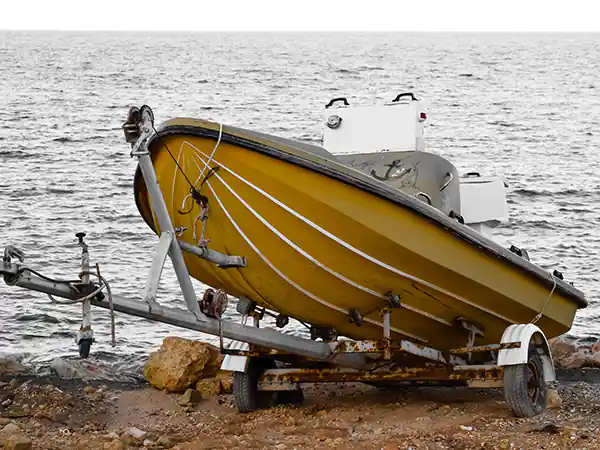Taking good care of your boat trailer
A properly maintained trailer can last for decades. On the other hand, no trailer, no launch, no boat. Indeed, for towable boats, it is most often overlooked when it comes to maintenance. But a few simple steps can make a big difference in terms of safety and durability.
When you’re planning to tow your boat out on the road, it’s crucial to make sure it’s in good working order. A well-maintained trailer not only ensures your safety, but also prolongs its lifespan, giving you many worry-free journeys.
From checking it after every use to inspecting the brakes and electrics, let’s discover the best practices for keeping it in top condition.
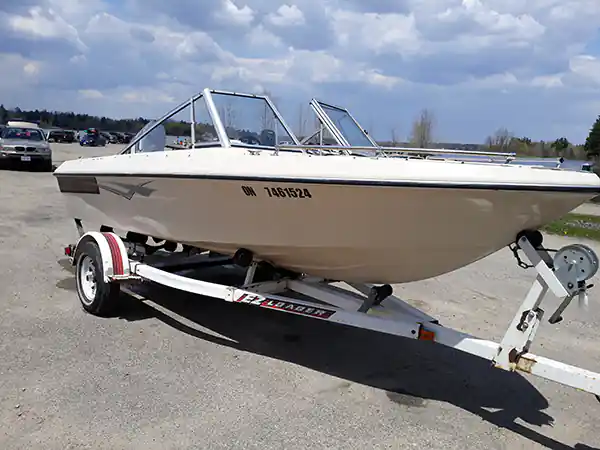
Looking after your trailer
Your trailer often needs maintenance to keep it running smoothly. And to make sure it stays in good condition, it’s best to look after it regularly.
First of all, it’s absolutely essential to rinse your trailer with plenty of fresh water after each use to remove salt and grime.
Next, check the condition of the chassis from time to time. Pay particular attention to the coupling head, jockey wheel and bolts on your boat trailer. After checking their condition, you can clean them with fresh water and grease them. The grease will help prevent corrosion.
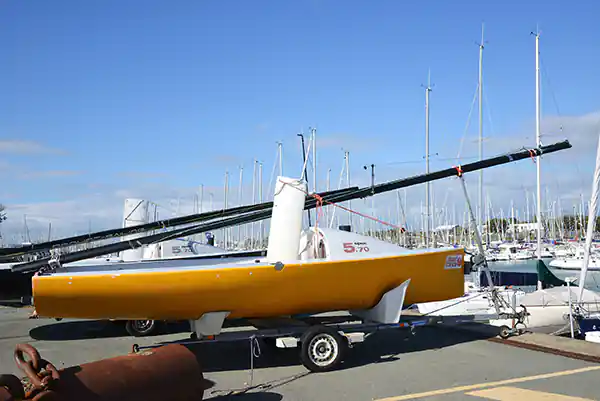
Let’s move on to checking the wheels. To make sure they’re working properly, you can inspect the bearings. Do remember to lubricate them regularly. You can spin them to ensure they are not too worn. It’s also essential to keep an eye on tyre wear, and to check their pressure regularly, especially after wintering. Make sure you replace any defective bearings or tyres in time.
Now you need to inspect the bunks and rollers on your boat trailer. They are essential for the proper support and securing of your boat. A padding in good condition will avoid damaging the boat’s hull. If the trailer is fitted with rollers to make it easier to get the boat in and out of the water, make sure they rotate correctly. If they don’t, de-seize them.
Finally, we recommend that you have your trailer serviced by a professional at least every two years. This will help you detect any problems that are harder to spot, and ensure that it is running at smoothly and safely.
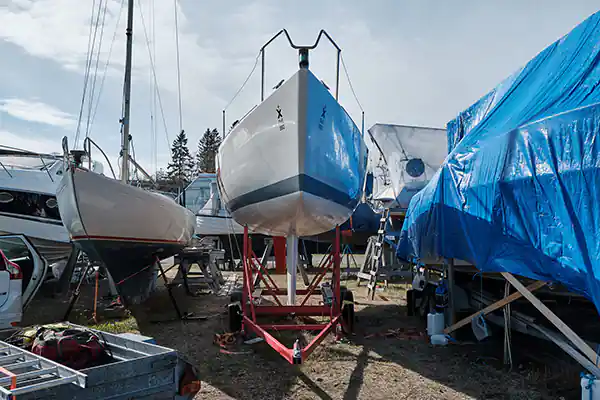
Ensure electrics operate properly
The connection of your trailer plays a crucial role in road safety. To avoid potential problems, make sure you have installed waterproof lights. This means you won’t have to remove your lights every time you launch your boat. These types of lights are specifically designed to withstand immersion and protect electrical circuits. If your trailer doesn’t sport this kind of lights, never immerse them! Remove the aft part before backing up in the water.
You should also check the socket on the car that will be towing your boat. We recommend cleaning it regularly with a water dispersant. Faulty contacts can lead to malfunctioning lights or signalling problems.
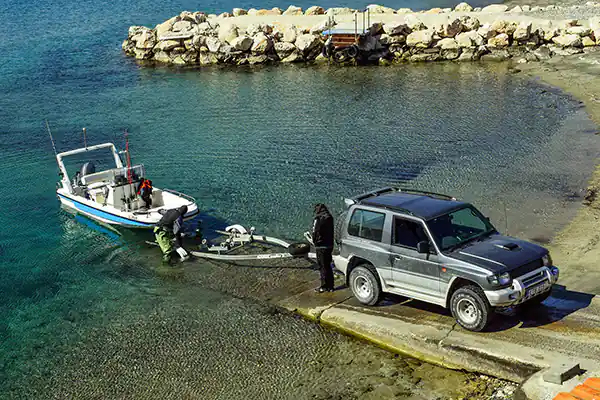
Check the trailer brakes
To ensure safety on your towing journeys, it’s essential to check the condition of your brakes regularly. Here are some important steps to follow to ensure good braking.
Start by checking the condition of your brakes. If you notice any signs of wear or damage, you can either repair or replace them.
Next, monitor the brake linings when you remove the drum. They can easily rust or accumulate dirt, which could reduce braking efficiency. Use fine sandpaper to rub them and avoid this kind of problem. However, be careful not to damage the pads by being too insistent with the sandpaper. Once you’ve cleaned your linings, you can degrease and relubricate your drum.
To ensure that the brakes are working properly, carry out a test drive with your trailer at around 10 km/h. The wheels should lock at the point where you apply the brake and the tow should stay in line without swerving. Braking should be smooth, without jerking or excessive vibration. If you encounter any problems during the test, seek professional advice for a more thorough diagnosis and possible repairs.
By following these steps and carrying out these checks regularly, you can ensure that your trailer brakes are in good working order. This will contribute to your safety on the road.
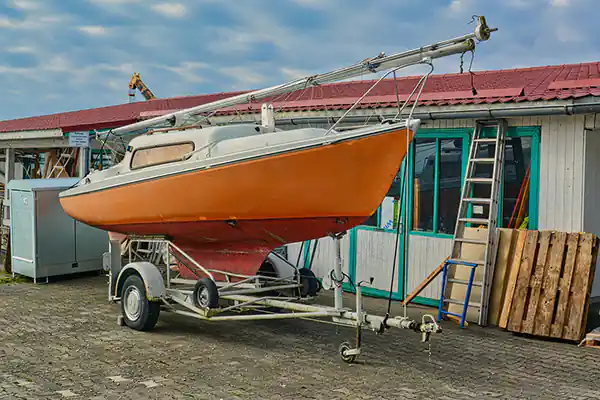
Let’s get rolling!
By now, you know that taking good care of your trailer is essential to ensure its durability and your safety on the move. By following these easy maintenance steps, you’ll make sure it’s in good working order every time you use it.
Getting into the habit of rinsing your trailer in fresh water after each launch is essential. Checking and caring for the chassis, wheels, bunks and rollers will keep it ready for use. Do not overlook the connection of your hitch, including your lights and the socket on the car towing it. Finally, it’s vital to check the brakes regularly. To make sure you don’t forget any of this, simply add your trailer to Ready4Sea!
Take care of your trailer, and it will accompany you safely on the road for more adventures. Remember: it’s your trailer that gets your boat back in its element!
